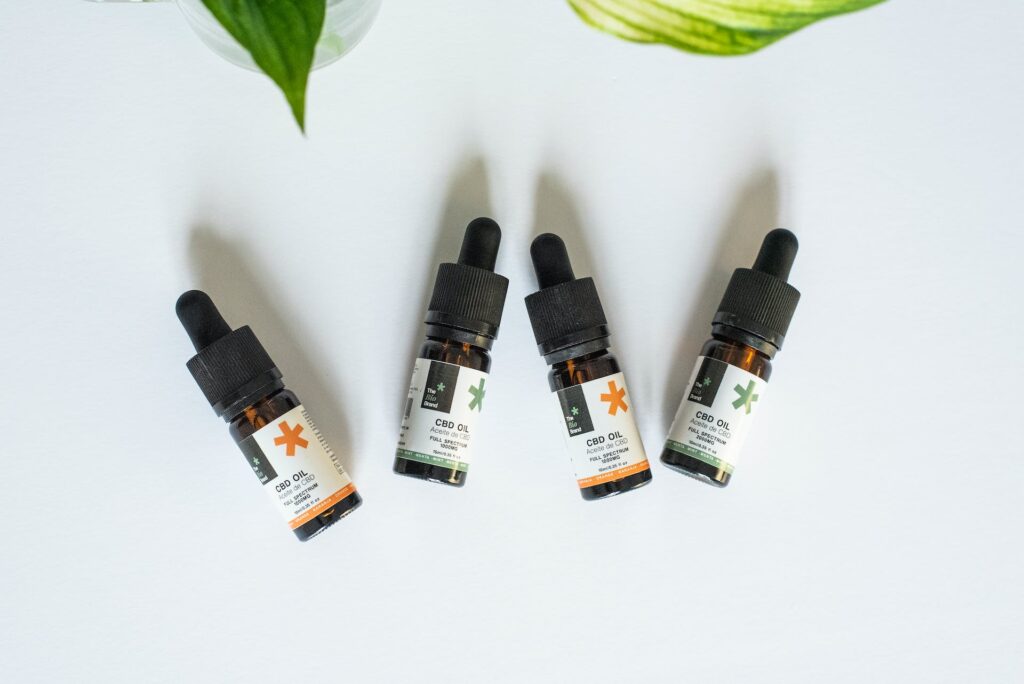Exploring the Health Benefits of CBD Oil: A Comprehensive Review
Everyone wants to know about the health benefits of CBD oil, and it’s hardly surprising considering there are so many. But the truth is that more research needs to be done. However, we already know about some of the health benefits of CBD oil now in 2024.
In recent years, the popularity of CBD oil has surged, and it’s no wonder why. Cannabidiol (CBD), a compound found in the cannabis plant, has been hailed as a potential wonder drug, with proponents touting its numerous health benefits. But what exactly is CBD oil, and does it live up to the hype? In this comprehensive review, we’ll explore the science behind CBD and examine its potential health benefits.
Understanding CBD Oil: What Is It?
Before we get to know the health benefits of CBD oil, we need to start at the start. CBD oil is derived from the hemp plant, a variety of cannabis that contains minimal amounts of THC (tetrahydrocannabinol), the psychoactive compound responsible for the “high” associated with marijuana. Unlike THC, CBD is non-intoxicating, making it an attractive option for those seeking the potential therapeutic benefits of cannabis without the mind-altering effects.
CBD oil is extracted from the flowers, leaves, and stalks of the hemp plant using various methods, such as CO2 extraction or ethanol extraction. The resulting oil is then typically diluted with a carrier oil, such as coconut or hemp seed oil, to create CBD products that are easy to use.
The Endocannabinoid System: A Crucial Player
To understand the many health benefits of CBD oil, it’s essential to familiarize ourselves with the endocannabinoid system (ECS). This complex network of receptors and molecules exists within our bodies and plays a crucial role in regulating various physiological processes, including mood, appetite, pain sensation, and immune function.
The ECS consists of three main components:
- Cannabinoid receptors: These are found throughout the body and are divided into two primary types, CB1 and CB2 receptors. CB1 receptors are primarily located in the central nervous system, while CB2 receptors are predominantly found in immune cells and peripheral tissues.
- Endocannabinoids: These are naturally occurring compounds produced by our bodies. Anandamide and 2-arachidonoylglycerol (2-AG) are two well-known endocannabinoids that bind to cannabinoid receptors to help regulate various functions.
- Enzymes: Enzymes like fatty acid amide hydrolase (FAAH) and monoacylglycerol lipase (MAGL) break down endocannabinoids after they’ve fulfilled their function, ensuring the ECS remains in balance.
CBD interacts with the ECS by influencing the activity of receptors and enzymes, which can have a profound impact on our overall well-being.

The Potential Health Benefits of CBD Oil
- Pain Relief: One of the most widely recognized benefits of CBD is its potential to alleviate pain. CBD interacts with both CB1 and CB2 receptors, modulating the perception of pain and reducing inflammation. This has led to the use of CBD oil as a natural alternative for managing chronic pain conditions like arthritis and neuropathic pain.
- Anxiety and Depression: CBD has shown promise in managing anxiety and depression by interacting with serotonin receptors in the brain. Some studies suggest that it may help regulate mood and reduce symptoms of these mental health disorders. However, more research is needed to fully understand its mechanisms and long-term effects.
- Sleep Disorders: CBD oil is also gaining attention for its potential to improve sleep quality and address insomnia. By reducing anxiety and promoting relaxation, CBD may help individuals fall asleep more easily and stay asleep throughout the night.
- Neuroprotective Properties: Some research suggests that CBD may have neuroprotective properties, which could make it a valuable tool in the treatment of neurological conditions like epilepsy and multiple sclerosis. Epidiolex, a CBD-based medication, is already approved for the treatment of certain forms of epilepsy.
- Anti-Inflammatory Effects: CBD’s anti-inflammatory properties make it a potential candidate for managing various inflammatory conditions, such as inflammatory bowel disease (IBD) and rheumatoid arthritis. It may help reduce inflammation in the affected tissues, providing relief to patients.
- Cancer Symptom Management: While not a cure for cancer, CBD has shown promise in managing symptoms associated with cancer treatment, such as nausea, vomiting, and pain. Some studies also suggest that CBD may have anti-tumor properties, though more research is required in this area.
- Skin Health: CBD’s anti-inflammatory and antioxidant properties may benefit the skin. Some individuals use CBD-infused creams and lotions to alleviate skin conditions like acne, eczema, and psoriasis.
- Heart Health: Preliminary research suggests that CBD may have a positive impact on heart health by reducing blood pressure and stress, both of which are risk factors for heart disease.
Health Benefits of CBD Oil: Dosage and Safety Concerns
While there are lots of potential health benefits of CBD oil, it’s essential to use it responsibly and consult with a healthcare professional, especially if you’re considering it as a treatment for a specific medical condition. The appropriate dosage of CBD can vary depending on factors such as body weight, individual sensitivity, and the desired effects.
CBD is generally considered safe and well-tolerated, with few reported side effects. However, some people may experience mild side effects like dry mouth, dizziness, or changes in appetite. It’s crucial to purchase high-quality CBD products from reputable manufacturers to ensure safety and effectiveness.
Legal Considerations
The legal status of CBD varies from country to country and state to state. In the United States, for example, the 2018 Farm Bill legalized the production and sale of hemp-derived CBD products containing less than 0.3% THC. However, regulations can differ significantly, so it’s important to be aware of the laws in your area.
The Promising Health Benefits of CBD Oil
CBD oil has emerged as a potential game-changer in the world of natural health and wellness. While research is still in its early stages, the evidence so far suggests that CBD may offer numerous health benefits, from pain relief and anxiety management to potential neuroprotective properties. However, it’s essential to approach CBD with caution, consult with a healthcare professional, and use it responsibly.
As interest in CBD continues to grow, more research will undoubtedly shed light on its full range of potential applications and long-term effects. Whether you’re seeking relief from a specific condition or simply looking to enhance your overall well-being, exploring the health benefits of CBD oil is an exciting journey that holds promise for the future of natural medicine.


